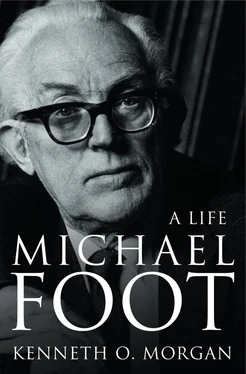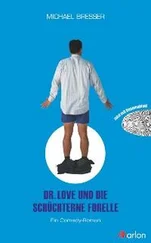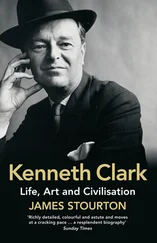By the late summer of 1935, for all the seductive appeal of Liverpool socialism, Michael Foot was restless. He was thoroughly bored in his job with the Blue Funnel Line. His thoughts turned again to writing a biography of Charles James Fox, and publishers were approached about this for a ‘Brief Lives’ series. Another historical subject that appealed to him was English radicals during the time of the French Revolution, a special place being accorded to Tom Paine. He did discuss the possibility of a book on this theme with Harold Laski, whom he heard lecture at the LSE and who was an inspirational force for so many young socialists in Britain and throughout the Commonwealth. But nothing came of it, and it was politics which seemed to beckon more powerfully. The Labour Party had been making some headway since the dark days of 1931, winning famous by-elections such as that in East Fulham in 1933. Foot himself was active in a by-election in the Wavertree division of Liverpool in February 1935. Here J. J. Cleary won the seat for Labour for the first time, after the Conservative vote had been badly split by an independent candidature from Randolph Churchill, standing on behalf of his father’s distinctly illiberal views on India. Pacifist-inclined though he was, Foot recognized the departure of George Lansbury as Labour leader after the 1935 party conference as inevitable. Who precisely he would have favoured as Lansbury’s successor is unclear. He had no trust in Herbert Morrison, and regarded Attlee as taciturn and colourless. On balance, perhaps, he tended to favour that patriotic (if drunken) Freemason Arthur Greenwood, father of his student friend Tony.
Suddenly in October, right on cue after successful Royal Jubilee celebrations which the Prime Minister, Stanley Baldwin, orchestrated with characteristic deftness, a general election was called. Michael Foot suddenly decided that he wished to be part of it. He travelled down to Labour’s headquarters in Transport House to see the party’s General Secretary, Jim Middleton (whose wife Lucy was to be a fellow Plymouth MP in 1945), and asked if there were any vacancies for Labour candidates. Given a list of long-shot constituencies with no record of Labour strength at all, Michael Foot, for no clear reason, selected Monmouth in south Wales. It had never been a seat that Labour expected to capture, although in a by-election in 1934 their candidate had won 35 per cent of the vote. That evening he took a train down to Monmouthshire, and was seen by the local agent Tom Powell and a handful of local officials. On the last day of October he was formally adopted as Labour candidate at a meeting chaired by Ivor Harries, President of the Monmouth division Labour Party. Polling day was barely a fortnight away. It was a disgracefully short period of campaigning and a forlorn hope for Labour, in a constituency the new candidate had never previously visited or even seen. Still, Michael Foot, at the age of twenty-two, was into serious politics for the first time. 19
Monmouth was the most Tory seat in Wales. Indeed, English in speech, squirearchical in tradition, it was hardly a Welsh seat at all. It lay in what the literary theorist Raymond Williams, a native, was to call ‘border country’. It was mostly an anglicized enclave along the Welsh marches, far more similar to rural Herefordshire or Worcestershire than to the radical or socialist traditions of Wales. Its outlook bore little resemblance to the nonconformist values of West Country England either. It was marked by the remaining influences of great houses – Lord Tredegar or the Dukes of Beaufort. It was strong hunting country, and the Beaufort Hunt was an ancient local institution: here was a pastime that Foot particularly disliked, for social as much as for humane reasons. Monmouth was also an area of immense natural beauty, hailed by early enthusiasts for the ‘picturesque’, along the river Wye and around Tintern Abbey, immortalized by Michael Foot’s much-admired Wordsworth. The South Wales Argus , published in Newport, detailed the placid panorama of rural Gwent ‘from Grosmont to Magor, and from Llanfihangel-Crossenny to Chepstow’. 20 There were pockets of Labour strength in the western parts of the constituency close to the mining valleys further west, while there was a strong railway interest around Abergavenny in the north-east, including the family of Raymond Williams. The fifteen-year-old Williams and his railwayman father, an activist in the Labour Party, campaigned for Foot. In fact the youthful Labour candidate did not impress the schoolboy Williams: ‘He was a new phenomenon, straight out of the Oxford Union, who did sound a bit odd in Pandy village hall. I said to my father: “What has this to do with the Labour Party?”’ 21
Monmouth had remained stolidly Conservative/Unionist during the Liberal ascendancy in Wales in the later nineteenth century, until the famous Liberal upsurge of 1906 when Major-General Sir Ivor Philipps captured the seat and held it until the end of the First World War. Since then it had been solidly Tory. In 1931 the Conservative candidate, Sir Leolin Forestier-Walker, held it easily in a straight fight with Labour, with a fourteen-thousand majority and 70 per cent of the vote. Michael Foot’s slender hopes were given an early buffeting at a meeting in Usk when his agent greeted the electors with the immortal words, ‘Here we are again in bloody old Tory Usk.’ The Conservative member since a by-election in 1934 was Major J. A. Herbert, a Tory of imperialist persuasion, later to be Governor of Bengal.
Nevertheless, the fledgling Labour candidate fought a spirited, even sparkling, campaign. Foot’s address and his speeches focused on the twin themes of peace and poverty. ‘The armaments race must be stopped now,’ and the League of Nations must be supported, including in the current crisis caused by the Italian invasion of Abyssinia. At home there should be public ownership of all major industries and banks (‘exchange’ had been added to ‘production’ and ‘distribution’ in Clause 4 of the Labour Party’s constitution at the 1934 party conference) together with social reforms, some of which were targeted on farm labourers, including a minimum wage and the abolition of tied cottages. 22 His early speeches at Caerleon and Chepstow defied the ethos of the constituency by being uncompromisingly socialist: ‘The community should take into its own hands the factories and land in order that the masses should share in the abundance.’ ‘One small section’ should not be allowed to ‘exploit the masses’ (applause). 23 In an article in the local newspaper he wrote that ‘Labour advocates as the main feature of its programme the national ownership of the factories and other wealth.’ The private owners of the means of production were ‘enemies of society at large’. There were vague echoes of Wells in imprecise calls to adopt scientific methods of production and to promote new inventions. 24 At Caldecot he urged that unemployment (rife in many parts of the constituency) should be made a national charge. Always there were assaults on the National Government’s record on international peace and its failure to promote disarmament. He attributed the recent increase in stock exchange prices to the rise in armament shares. He shrugged off criticisms that, at twenty-two, he was too young to be a Member of Parliament. After an evening meeting at Rolls Hall, Monmouth, the press recorded that ‘never before has a Labour candidate received such applause at the close of an address’. 25
There were, inevitably, few outside speakers in Labour’s forlorn Monmouth campaign. Foot was assisted by Stafford Cripps’s youthful protégé, the Quaker Geoffrey Wilson, and indeed Cripps came down to pay the young candidate a remarkable tribute, saying that he hoped to see him in an incoming Labour administration after the polls. Cripps was as robust as Foot: the Labour Party ‘sought to get rid of private ownership of production … in order to give the workers a decent life’. 26 There was also a resounding eve-of-poll meeting, addressed by two coming stars, Aneurin Bevan and James Griffiths. It rained heavily on polling day. The outcome was a reduced Conservative majority of 9,848. Major Herbert polled 23,262 votes and Foot 13,454. Labour was to remain a relatively weak force in the constituency thereafter, until a passing victory in 1966 and a more sustained period of power in 1997–2005 under the banner of New Labour. But old or new, the Labour Party was never going to find it easy in so traditional an area.
Читать дальше












